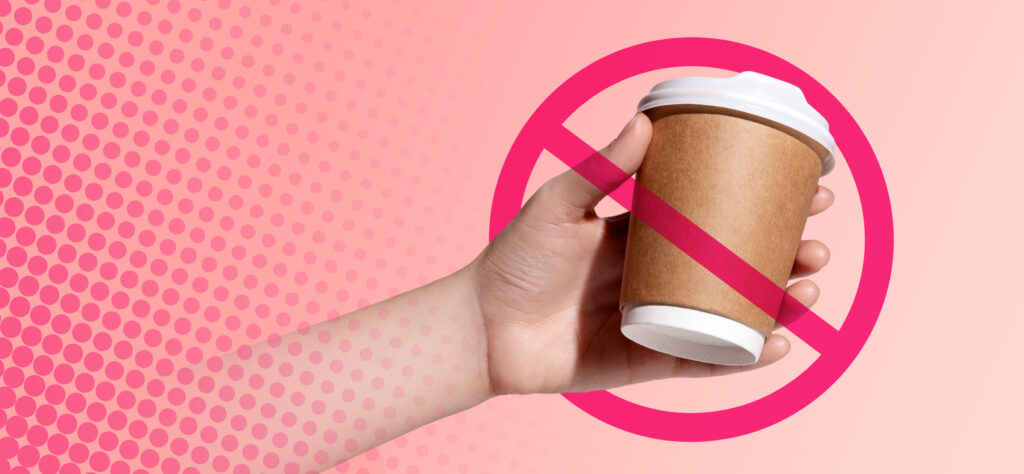How Alcohol and Caffeine Affect PMU Results: A Guide for Artists on Educating Clients
Throughout the course of your permanent makeup career, you’ll be dealing with lots of different types of people with different questions. And one of the most important of these is whether it’s okay for your client to consume alcohol or caffeine before their PMU appointment.
Whether you do microblading, machine micropigmentation or even tattooing, the answer is always the same: a big fat no!
Not explaining this step to your clients can cause huge issues in how your treatment heals as well as your client’s comfort and safety. Setting clear expectations that they shouldn’t consume caffeine or alcohol in the 24 hours leading up to their appointment will help them to feel in control and prevent any risks of adverse effects - more on how to explain these can be found below.
Whether you’re a beginner PMU artist or need a brush-up on why and how coffee and alcohol can affect your PMU results, this is all about how you can discuss the topic with your client professionally!
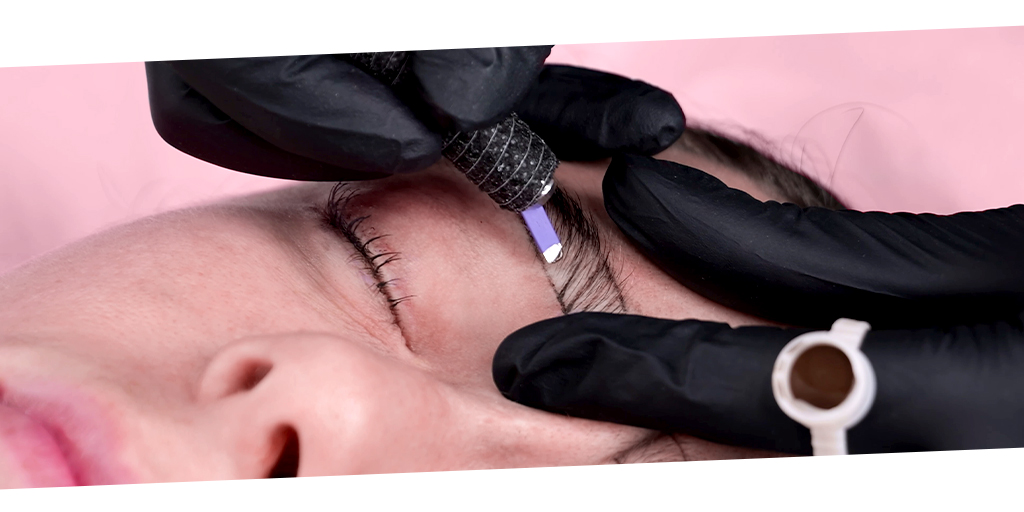
The Impact of Alcohol & Caffeine on PMU
Excessive bleeding
Both alcohol and caffeine cause your client’s blood to thin, making it flow easier - this can lead to excessive bleeding when they’re on the receiving end of a needle.
With excessive bleeding, it’ll be harder for you as an artist to implant pigment consistently and safely, which may lead to patchy results.
Slow Healing, and Increased Risk of Infection
As professionals, we know that alcohol is bad for us, our skin, and its healing properties - but you can’t count on your client to know this.
Don’t just tell them not to drink alcohol or caffeine before your appointment - explain to them how caffeine and alcohol affect their ability to heal. If that sounds a little too abstract to get the point across, tell them that they’ll experience more pain during the treatment, and the treatment period will take longer, which allows more opportunity for the treatment site to become infected or scar.
Poor healing can even affect colour retention, meaning they’ll have to come back for a top-up sooner!
Reduced Immune System Function
Alcohol reduces the effectiveness of the immune system, leading to much the same problem as above - slow healing, which allows more time for things to go wrong.
Another area this is relevant is for clients who are susceptible to cold sores, which arise as a response to a lowered immune system. Find out ahead of time if this is something that affects your client, and recommend that they talk to their doctor about preventative antiviral medication - but express to them that adding alcohol to the mix is going to make the situation worse.
Increased Production of Lymph Fluid
During, immediately after the treatment and for the first few days of healing, lymph fluid will drain from the area. This is completely normal - however, if your client has consumed alcohol in the last 24 hours, you’ll likely notice a lot more of it.
This can prevent pigment from implanting properly, and excessive lymph fluid leaking after the treatment can lead to scabbing, poor pigment retention, and potentially scarring.
Increased Sensitivity
If the long-term negative effects don’t sway them, impress upon them a more immediate problem: the treatment will hurt more!
Drinking alcohol the night before the appointment results in heightened sensitivity and a reduced pain threshold. It will be harder for them to sit comfortably through a session where they’re experiencing more pain than usual, and harder for you to do your job well.
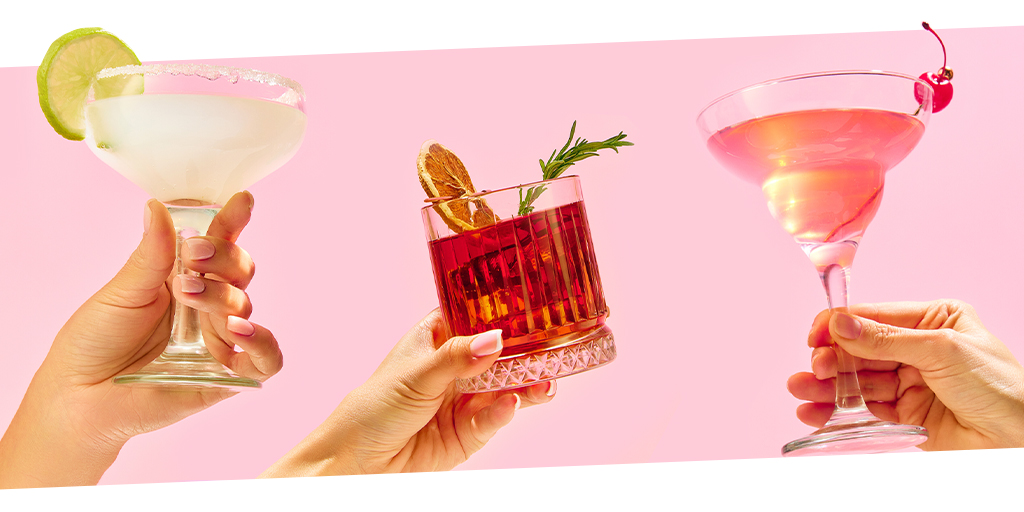
Common Client Questions About Alcohol and Caffeine
“Why can’t you drink coffee before microblading or PMU?”
Caffeine has a number of side effects that can cause problems in the PMU process - here's a list to make the major points easier to explain!
Dehydration: with drier skin, pigment implantation will be more difficult, affecting the finished results, which may take longer to heal.
Raised blood pressure: caffeine increases heart rate and blood pressure, making your client more sensitive to pain and discomfort, and may also heighten the risk of bleeding.
Lowered anesthetic effectiveness: if you use any topical anaesthetics like numbing cream in your treatments, caffeine consumption can counter its effects.
“Can I drink alcohol before microblading or PMU treatments?”
Alcohol causes all sorts of issues to both PMU artist and client; these are the main issues to explain to them…
Dehydration: as with caffeine, alcohol dehydrates the skin, causing issues with pigment implantation and prolonged healing periods.
Blood thinning: alcohol thins the blood, which means you will bleed more throughout the treatment, affecting the treatment process and healed results.
Compromised immune system: if your immune system isn't running as usual, it'll take longer for your body to heal from wounds and skin trauma.
Too much lymph fluid: as well as hindering the implantation of pigments, excess lymph fluid can seriously slow down healing and potentially cause scarring.
Excess pain: alcohol increases your sensitivity and reduces your pain threshold, so it'll just plain hurt more!
“Can you drink alcohol after microblading or PMU?”
Once they’ve gone through the painful treatment, your clients might be tempted to go for a glass of wine to relax - bad idea!
For the first few days after the treatment, alcohol should be avoided, for many of the same reasons as above. They certainly shouldn’t be getting drunk while sporting an open wound; physical irritation and damage is a real concern in the first few days, and an impaired mind won’t help them to be careful.
And if nothing else is getting through, explain the financial costs: a poorly healed treatment will cost them more in the long run.
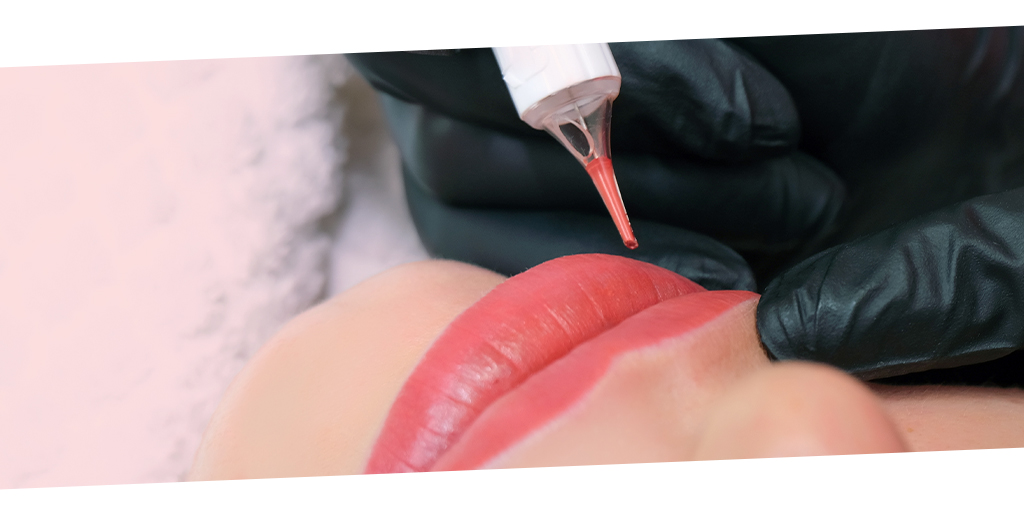
Mitigating Risks and Minimising Excess Bleeding
No matter how much you warn your client not to consume alcohol or caffeine, there’s always a chance your client will show up with a half-finished Starbucks cup in hand! If you’ve been clear about the repercussions, then all you can do is try to minimise the excess bleeding and reduce the risk of poor healed results.
Firstly, using the right equipment will help. Using needles with long tapers and in larger configurations can help to reduce trauma, as you’re making smaller punctures faster. If they are bleeding more than expected, you may want to work a little faster - but try not to rush. Read more about taper lengths on our Guide to Needle Tapers or go back over our PMU Cartridge Guide blog for more.
There are other products like glides that you can use to improve pigment implantation and cause less trauma, such as Hustle Butter Deluxe®. This softens and smooths the skin, allowing your needle to move more easily without clogging - this reduces trauma and bleeding. You should also make sure to use high-quality cartridges with razor sharp needles, such as Stellar 2.0.
If you’re panicking, try checking out our video with Tanya Buxton on PMU Troubleshooting - she goes over some of the most common problems, and the techniques and tools we can use to mitigate them.
Other Substances To Warn Against
Caffeine and alcohol cause the biggest problems, but there are other products that you should ask about, and that your client should be aware of avoiding in the run up to the treatment date.
Medication
Finding out what medication your client is taking - even over-the-counter options like ibuprofen and aspirin can thin the blood, and should be avoided for the 24 hours running up to the appointment. There are a few prescription medications that thin the blood, including anticoagulants and antiplatelet drugs.
This doesn’t mean they can’t get the treatment - it’s just very helpful for you to know ahead of time, so you’re prepared!
Retinol & Skincare
There are several common ingredients in skin care that can have negative effects on PMU, especially during the healing process.
Any ingredient that thins the fragile skin of the face can cause excessive bleeding, reduced pigment implantation and poor healed results - this includes things like retinol, glycolic or lactic acid, AHAs or vitamin C.
Tell your client ahead of time that they should remove these products from their routine a week before the treatment date, and continue to avoid them until the treatment is fully healed.
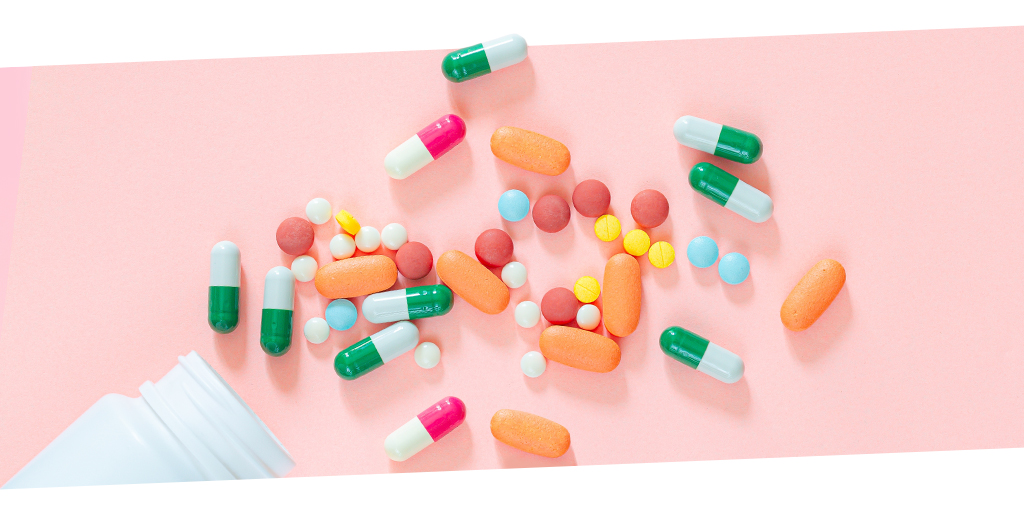
Need to learn more about adverse effects on the PMU healing process? We’ve got blogs on Discomfort Management, Understanding Pigment Longevity, Understanding the Healing Process, and Managing Complications in PMU.
